Khoury News
Meet the 2023 Khoury College award winners
Khoury College community members are always going above and beyond in their classrooms, research labs, co-ops, and community service positions. Each year, committees comprising the college’s administrative staff and advisors, […]
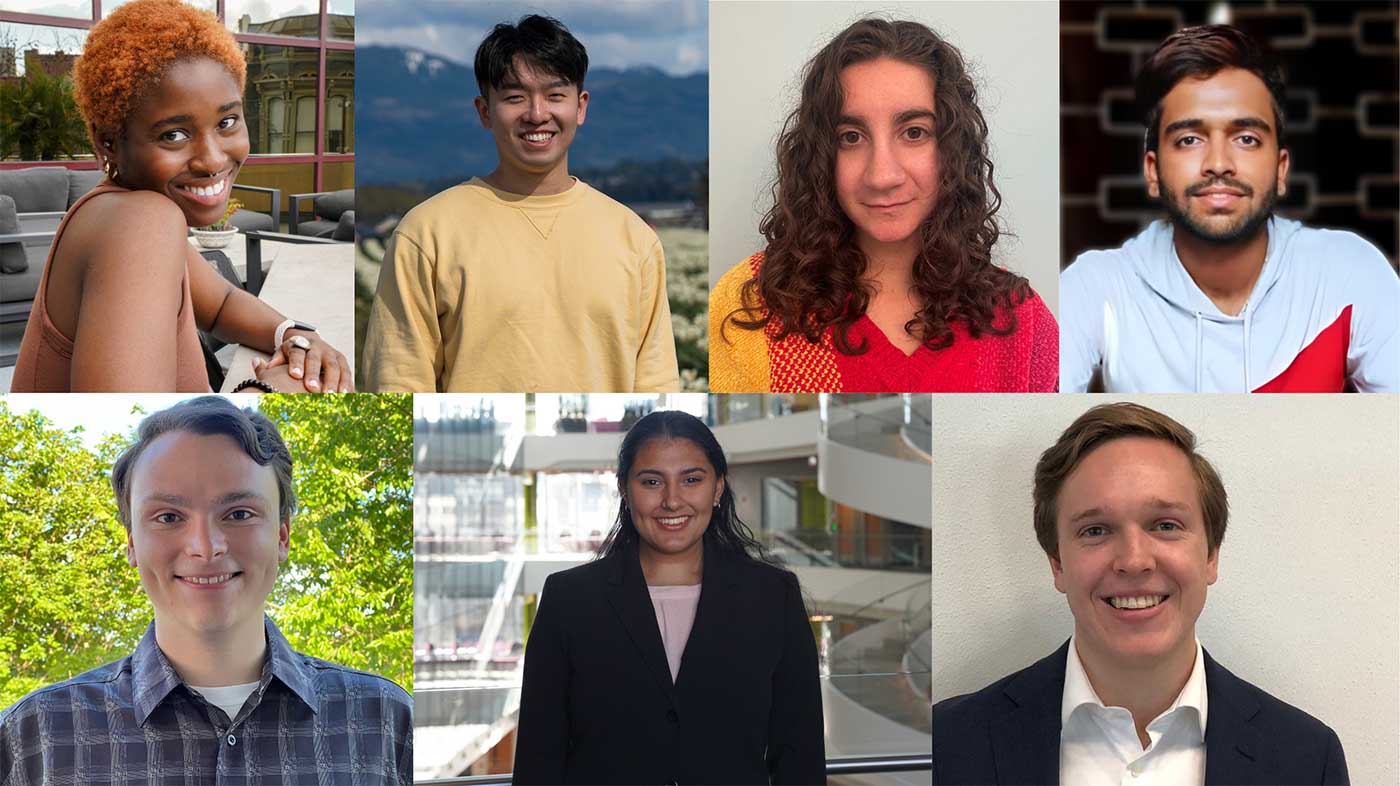
Khoury College community members are always going above and beyond in their classrooms, research labs, co-ops, and community service positions. Each year, committees comprising the college’s administrative staff and advisors, plus faculty and co-op advisors for the undergraduate committee, recognize some of the college’s brightest stars — students who stretch the boundaries of creativity, innovation, service, and learning. Read on to meet the seven outstanding undergraduate and graduate students who were honored for their accomplishments in 2023, or click a name to jump to that point on the page.
Undergraduate: Anusha Arora (Community Service), Michael Delmonaco (Research), Amanda Bell (Teaching), Floris Dobber (Co-op)
Graduate: Sumukh Vasisht Shankar (Research), Kristine Nnemka Umeh (Community Service), Haotian Shen (Teaching)
Anusha Arora, Undergraduate Community Service Award
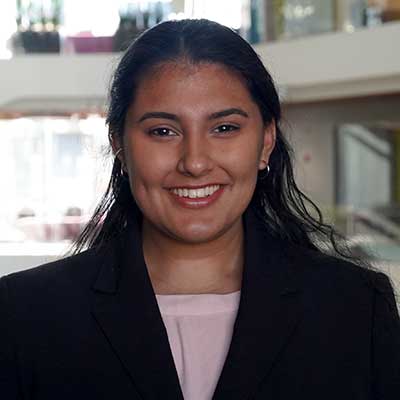
When Anusha Arora began her CS and business administration degree, she found that peer mentorship was available to her — if only she went searching for it. Receiving casual advice from older students on everything from the co-op process to how to use Github helped Arora a lot, so she decided to use the marketing half of her degree to ensure her classmates knew about the resources available to them.
Arora started as the mentorship chair at the student-run Computer Science Mentoring Organization (CoSMO), developing and marketing the program’s mentorship opportunities. She forged collaborations with NU Women in Technology and Northeastern’s Multi-diverse Unified Leaders in the Technology Industry to more efficiently to utilize their mentors, and even served as a mentor to several students herself. She eventually worked her way up to president of CoSMO in 2021, and also co-led Northeastern Women in Business.
“The most fulfilling part was just watching CoSMO grow as an organization. When I joined, it was still fairly new and was in a stage of trying to grow its programming,” Arora said, noting that the club’s membership now tops 300. “It’s been such a fulfilling journey, and looking back and seeing how I contributed to that journey is really wonderful.”
READ: CoSMO connects and creates safe space for new computer science students
After graduating in May with a BS in CS and business administration with a concentration in marketing and a minor in psychology, Arora will return to Northeastern through the PlusOne program to obtain her MS in CS. She’s excited to remain a part of the Khoury community and plans to keep an eye out for further mentorship opportunities to lift up others the way she has been lifted up.
“When I came into Northeastern, I had zero computer science experience. For me, it was a really intimidating field,” Arora said. “Being able to provide a comforting, unintimidating, non-competitive environment for people to learn and ask questions to older students was really great.”
Michael Delmonaco, Undergraduate Research Award
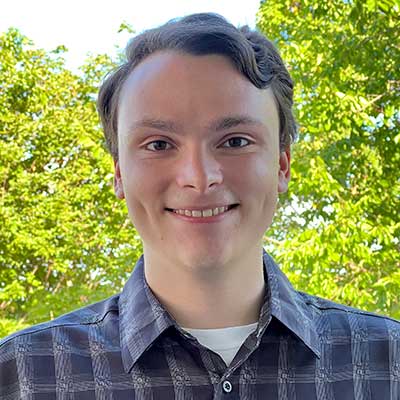
Michael Delmonaco loves to fall down rabbit holes, and coding offers him endless rabbit holes to stumble into. With a little help from Professor Ben Lerner, Delmonaco discovered an interest in programming languages, which led him to his deepest rabbit hole yet.
Domain-specific programming languages allow coders to perform specific functions (like writing tests or rendering web content) that would be unwieldy using a general-purpose language like Java or Python. Working with Professor Matthias Felleisen and his PhD student Michael Ballantyne, Delmonaco helped develop syntax-spec, a tool that makes it much easier to write and implement tiny languages inside of the programming language Racket. The tool is now available for other programmers to use, and Delmonaco is proud to have made a tangible contribution to the field.
“Coding is one of my main hobbies, so this was basically a hobby project on steroids. I was doing something that I wouldn’t be capable of doing on my own, but I had top experts in the field — like Matthias, the guy who made Racket, and Michael, a global expert on macros — advising me and guiding me through this really interesting project,” Delmonaco enthused. “I’m very excited to see what people do with syntax-spec, because I think it’s going to be very useful for making domain-specific languages.”
After graduating in December with a BS in CS and a concentration in AI, Delmonaco is now working as a web developer at AWS. He’s happy to be working in industry for the moment, but he plans to keep an eye peeled for ways to stay involved with the programming languages research community, a small but enthusiastic group in which he’s come to feel at home.
“I didn’t have a single bad Khoury professor, but any professor that was involved in programming languages was just amazing,” Delmonaco said. “They’re all so enthusiastic and they’re all such amazing teachers. They love what they do, and they want you to love it too.”
Amanda Bell, Undergraduate Teaching Award
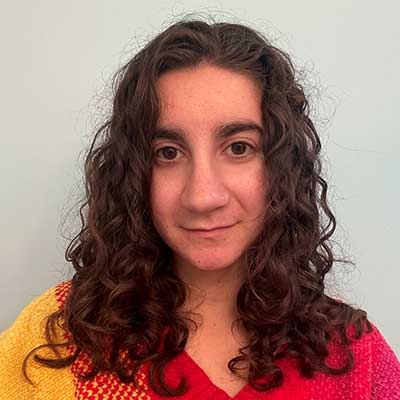
One might not expect it of an award-winning TA and peer tutor with a combined major in behavioral neuroscience and data science (and a minor in German), but Amanda Bell wasn’t always the greatest student during her time at Northeastern. But to Bell, that’s the point. Her own TAs were crucial to her success, and she wanted to help others in the same way. Plus, knowing what it feels like to struggle in a class gave her a lot of empathy for her students.
Bell served as a TA for “Large-Scale Information Storage and Retrieval” for two semesters in her third year, helping students master document-based data storage systems like Mongo and message-based storage systems like Redis. She has also spent the last year peer tutoring — first tackling biochemistry and neurobiology, then shifting to biostatistics to help address a lack of tutors in the highly specialized subject.
“What’s been the most rewarding is that students in this biostatistics class are learning from what we and their professors are telling them, but also they come up with things that we hadn’t even thought about before,” Bell said. “That’s the idea of teaching, at least as I see it. You’re not trying to make someone as good as yourself, you’re trying to help them to be better than you.”
After graduating in May, Bell plans to join biologics research and early-stage clinical development company Vistera, where she will be a research associate. She’ll work on the programming side of a cell-sequencing team, and while she expressed interest in returning to teaching eventually, she’s happy to be working in industry for the moment. Wherever Bell goes, she will continue to push herself and her fellow learners, as she’s never been one to shy away from a challenge.
“It may be a controversial answer, but honestly my favorite part of my time at Khoury was the very first series of programming courses,” Bell said. “I would not say I enjoyed them in the moment, but looking back, the whole Fundies 1, Fundies 2, and “Object-Oriented Design” sequence has been the most beneficial part of programming that I’ve experienced in college. It teaches you how to persist and work through problems even though you’re doubting yourself.”
Floris Dobber, Undergraduate Co-op Award
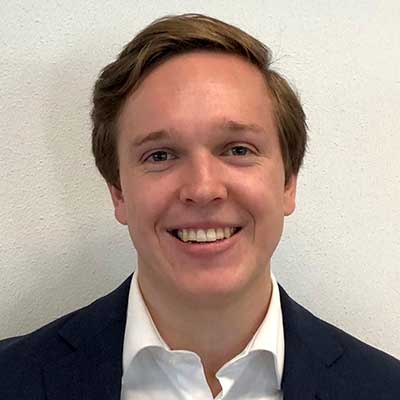
Data science has taken Floris Dobber all over the world, from a car-leasing company in Munich to environmental tech incubator Greentown Labs in Somerville to the world of finance with Eaton Vance. He’s taught himself natural language processing and built algorithms to sort and classify daily news articles. Not a bad résumé for someone whose interest in data science began with nothing more than curiosity about soccer statistics.
“The Northeastern data science program is super broad, but also in-depth enough that you get some real skills that you can apply to your job, like I did at my co-op and hopefully will in my future career,” Dobber said.
For Dobber, the diversity of his co-op experiences was the most valuable piece of Northeastern’s experiential-learning program. Working with Greentown Labs showed him how much he loves a startup environment, while his time at Eaton Vance taught him that he loved the competitive world of global finance. He plans to move to London to pursue graduate studies in finance, adding specialized economics skills to his general-purpose data science know-how.
His favorite part, though, has always been looking back at the end of each co-op to see just how far he’d come.
“As you’re wrapping up and working to hand over to the next person, you look back and see what you’ve worked on, what you came in with, and all the skills you learned,” Dobber said. “And you’re like, ‘Wow, when I started I didn’t even know what this meant, and now I’m teaching the next person to understand all the work I’ve done here. It’s a really nice moment.’”
Sumukh Vasisht Shankar, Graduate Research Award
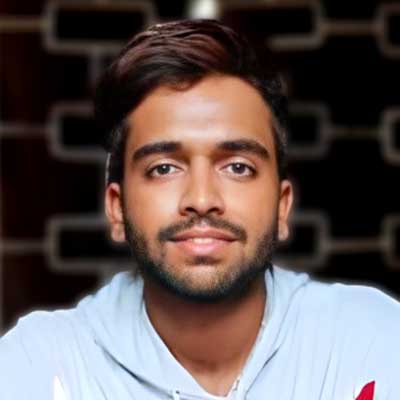
After completing a bachelor’s degree in information science and engineering in India, Sumukh Vasisht Shankar came to Khoury College with a clear goal: to get himself involved in research.
After spending a semester volunteering on Professor David Choffnes and Alexander Gamero-Garrido’s data localization project, Sumukh was accepted into the Khoury Research Apprenticeship program, in which master’s students participate in research relevant to their degree while being mentored and supported by faculty advisors. He spent the following year working with Khoury Professor Robin Walters and Rutgers Professor Jon Singer to build deep learning models exploring the relationship between the heat profile of a dynamic spatial light modulator and the pattern of reflected light it produces.
READ: The researcher’s apprentice: master’s students showcase innovative projects
Dynamic spatial light modulators are devices that change the amplitude and phase of a beam of light. They are used for data storage, holographic projection, and optical computing — a high-bandwidth type of computing that uses light waves to process data. However, because they are extremely expensive and difficult to use, deep learning models that can simulate dynamic spatial light modulator processes using very little training data are critical to the field’s continued development.
“There’s a scarcity of this information over the internet or in textbooks, so I’m learning about it right from the foundations and generating new knowledge. I find that fascinating,” Sumukh said. “The opportunities available here at Northeastern — and especially at Khoury College — opened up doors to a plethora of opportunities for me, and I’m unfathomably grateful for it.”
Sumukh will be pursuing one of those opportunities — researching deep learning models for cardiovascular research at a Yale laboratory — after he graduates this May. He’s considering a PhD after that, eager to remain in the world of research.
“The Khoury Research Apprenticeship program is also dubbed as a ‘pathway to a PhD’ program, so it’s a wonderful opportunity,” he said. “I would definitely encourage other students to go for it. It’s a wonderful opportunity to work on cutting-edge research; Khoury College is doing amazing research across all fronts, from cybersecurity to biomedicine.”
Kristine Nnemka Umeh, Graduate Community Service Award
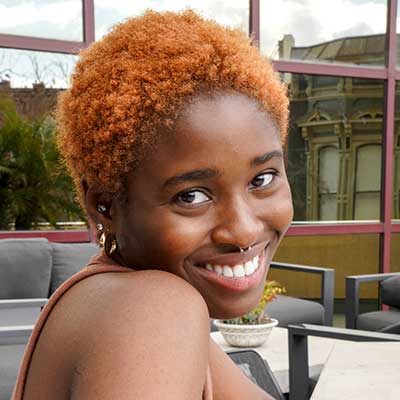
Few are more qualified to talk about what it’s like to be a Northeastern student than Kristine Nnemka Umeh. After doing her undergraduate studies in chemical engineering and Mandarin at the Boston campus, Umeh joined Khoury College’s Align program — a graduate program intended for students without computing backgrounds — and pursued an MS in CS at Northeastern’s San Francisco campus. So when she was presented with the opportunity to be a student ambassador and share her insights with other prospective Northeastern students, Umeh jumped at the chance.
As a student ambassador, Umeh has attended conferences, mentored younger students, and sat down to chat with dozens of prospective Aligners. She helps them to gauge the weight of the workload they are expected to handle, the benefits of choosing one campus over another, and how best to prepare for Align, among other questions. She’s still in contact with several people who ended up enrolling in Align in San Francisco, just as she did.
“My advice is always to rest before the program. People are making preparations, but you can’t really prepare because you don’t really know how it’s going to go,” Umeh said. “Don’t bend over backwards trying to watch all the YouTube videos and be proficient because that’s just not gonna happen, and that’s what the program is for. Don’t try to rush yourself.”
Umeh is glad that she waited until her graduate studies to pursue computer science. Having a background in a different field of study helps her to think deeply not just about whether the tools she’s building actually function, but whether they’re working towards worthwhile ends to begin with. She loved that the Align program put her in contact with other students who brought similarly diverse backgrounds and unique experiences to computer science, and she’s excited to put her new skills to work in industry.
“Diversity of thought is so important for the future. People who have a background in philosophy, sociology, literature and linguistics — we need those people getting their hands on code because they can offer feedback on how these models should behave,” Umeh said. “I’m really excited for the future, and I feel like Northeastern really helped prepare me.”
Haotian Shen, Graduate Teaching Award
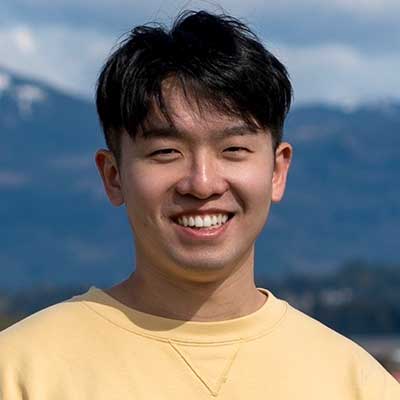
As an Align student with a background in chemical engineering and biology, Haotian Shen is no stranger to the frustration of getting stuck on a problem and lacking the resources or technical knowledge to get yourself unstuck. That’s why he doesn’t limit his assistance to his office hours. Shen encourages his students to contact him over social media for assistance, jump into a breakout room with him during a larger Zoom session to ask questions they might be embarrassed to pose in group settings, and ask for tips about everything from databases to internships.
“We need to acknowledge that different students have different learning perspectives, and they want to learn in different ways. Sometimes when I try to explain materials in a way that I think may be clear, they may not understand immediately,” Shen said. “Growing together with the other students is one of the most satisfying experiences I’ve had.”
Shen appreciates getting immediate feedback as much as he appreciates giving it. He transitioned to computer science because he loved that he didn’t have to wait weeks or months for tests to finish the way he did as a chemical engineer; he could run his code and immediately see what worked. He also appreciated that his Khoury professors were extremely up-to-date on the tech industry and could give him lots of relevant feedback. Their preparation and guidance helped him to land an internship as a software engineer at AWS last summer, a position he’ll return to after he graduates in May.
For students interested in making the transition to tech, Shen advises trying an introductory programming course online, just to see whether they like the subject in practice as well as in theory. And if they do?
“Northeastern’s Align program is such an awesome program that really breaks you into the tech industry. The co-op policies are really flexible, so they allow students to find internships in a more competitive way compared to other schools,” Shen said. “I think if they’re really determined to enter the tech industry, just come to Align.”
The Khoury Network: Be in the know
Subscribe now to our monthly newsletter for the latest stories and achievements of our students and faculty